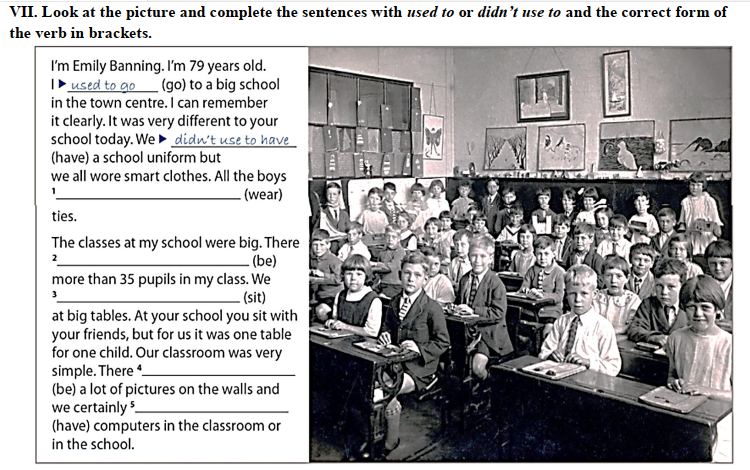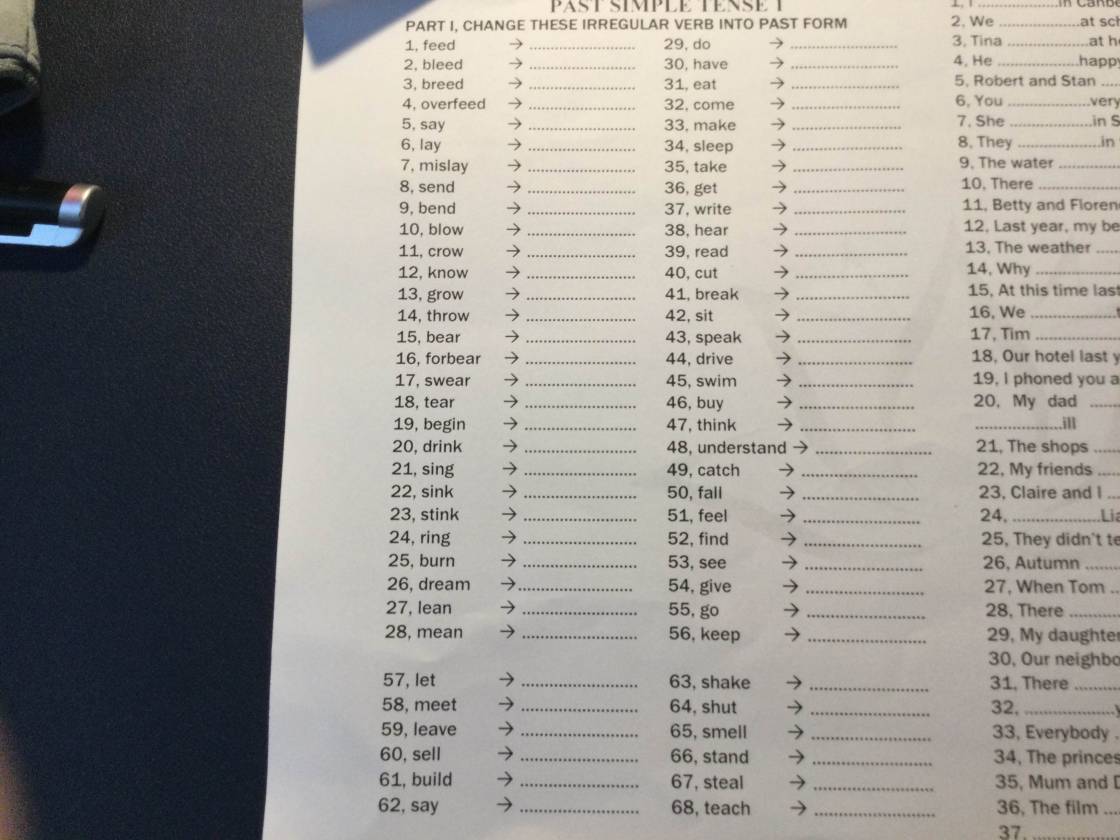
Hãy nhập câu hỏi của bạn vào đây, nếu là tài khoản VIP, bạn sẽ được ưu tiên trả lời.




à
Hello my name is nam. My house over there I will talk about my dear home. First, when you enter the living room, you will see a set of tables and chairs and TV. (I have a lot of sympathy) dịch câu mở ngoặc này nha đừng ghi bậy :)

1 . watch / a volleyball match ?
A : Have you watched a volleyball match ?
B : Yes , I have watched
2 . win / a compettition
A : Have you won a competition ?
B : Yes , I have
3 . see / a play
A : Have you seen a play ?
B : Yes , I have
4 . see / an action film
A : Have you seen an action film ?
B : No , I haven't
5 . eat / Chinese food
A : Have you ate Chinese food ?
B : No , I haven't
6 . meet / a famous person
A : Have you met a famous person ?
B : No , I haven't

Đây mới được gọi là ngắn thật sự
By 2030, robots will be able to play tennis. It will be able to play very well. Robots will be look after children or old people. It will be able to feed babies or pets. It will be able to feed careful. Robots will be able to talk with people but It can talk with people now. Robots won't be able to find and repair problems in our bodies. And robots won't be able to understand what web think. By 2030, I think that robots will be useful.
Tick giùm mình với nhé bạn
Getting policies right for issues like self-driving cars and unmanned aerial vehicles is tough, but doable. Latin America isn’t significantly behind the regulatory curve. Even in the U.S., only a few states have passed rules regulating self-driving vehicles, and the Federal Aviation Administration is just this year getting around to publishing regulations on civilian drone use. Once the region’s policymakers realize that these safety issues are less than a decade away (if not already here today), they will, hopefully, begin to act.
However, addressing the impact of robotics on the economy and the labor market is much more difficult. How does the region prepare for a technology revolution that will upend millions of jobs and dozens of industries vital to regional economies? How can Latin American countries prevent the inevitable wave of economic disruption from escalating into a crisis of political stability?
There is nothing Latin American governments can or should do to slow technology’s progress in their countries.
Instead, they need to find ways to embrace the positive aspects of robotics. Even if the above sections appear a bit pessimistic, the potential of self-driving cars to reshape urban transportation, of unmanned drones to remake the logistics industry, and of robotics in general to make industries more productive and to push the boundaries of what is technologically possible could provide great benefits to Latin America and the rest of the world.
Some of the policies needed to address advances in robotics are obvious. Nearly everyone agrees on the importance of building educated, innovative and adaptive workforces. However, the reality of building those workforces requires Latin American governments to make politically difficult choices. These include raising taxes to pay for investments in education from pre-kindergarten to post-graduate levels that will enable the next generation to succeed.
Additionally, while government investment in research and development is essential, innovation is really going to come from the bottom up. Policymakers need to streamline the process of building businesses and—perhaps more importantly—of creating cultural and legal frameworks in which innovative, technology-driven businesses can fail productively. Innovation requires entrepreneurs to take risks, but they are less likely to do so when harsh bankruptcy laws and a culture that punishes unsuccessful risk-takers in the business environment hold those entrepreneurs back.
On education, small-business creation, social safety nets, and regulations, the policy choices made in the next 10 years are going to determine whether Latin America embraces the benefits of robotics or faces a new lost decade, as it did in the 1980s. The economic transition to a greater use of automation and artificial intelligence is going to disrupt economies and create social tension, but some of the difficulties can be mitigated and some opportunities can be grasped if the region begins acting early.
The most important step is to get more of Latin America’s politicians, think tanks and civil society to discuss and debate the coming technology revolution. Unfortunately, many of the hemisphere’s political leaders spend more time discussing Cold-war era disputes than technology issues affecting the vast majority of Latin America today and into the coming decade.
The region’s politicians aren’t going to spend time discussing robotics until they feel pressure from voters and civil society.

There are a woman, a man, and a child
They are in the kitchen
They are cutting a piece of meat

Parents are the ones who always love and protect us. Parents love us unconditional. They just hope we are happy. Just because the pieces of the coat of the child that many parents have to. When we are sick, our parents are always the ones who care for us. Therefore, we must know the importance of that feeling. When it is not late, who is not filial to parents, then love. loving and obedient to her father when possible.
Bài này mình viết tiếng việt nhưng dịch ra tiếng anh nha bạn![]()
con Hà Thị Ngọc Giang ngu vãi có mỗi cái đấy thôi cx dell làm đc m ko có tình cảm vs cha mẹ

1. feed -> fed
2. bleed -> bled
3. breed -> bred
4. overfeed-> Overfed
5. say -> Said
6. lay -> Laid
7. mislay -> Mislaid
8. send -> Sent
9. bend -> Bent
10. blow -> Blew
11. crow -> Crew
12. know -> knew
13/ grow -> grew
14. throw -> threw
15. bear -> Bore
16. forbear -> Forbore
17. swear -> Swore
18. tear -> Tore
19. begin -> Began
20. drink -> Drank
21. sing -> Sang
22. sink -> Stank
23. stink -> Stank
24. ring -> Rang
25. burn -> Burnt
26. dream -> Dreamt
27. lean -> Leant
28. mean -> Meant
29. do -> Did
30. have -> Had
31. it -> Itted
32. come -> Came
33. make -> Made
34. sleep -> Slept
35. take -> Took
36. get -> got
37. write -> wrote
38. hear -> Heard
39. read -> Read
40. cut -> Cut
41. break -> Broke
42. sit -> Sat
43. speak -> Spoke
44. drive -> Drove
45. swim -> Swam
46. buy -> Bought
47. think -> Thought
48. understand -> Understood
49. catch -> Caught
50. fall -> Fell
51. feel -> Felt
52. find -> Found
53. see -> Saw
54. give -> gave
55. go -> went
56. keep -> kept
57. let -> ley
58. meet -> met
59. leave -> left
60. sell -> sold
61. build -> built
62. say -> said
63. shake -> shook
64. shut -> shut
65. smell -> smelt
66. stand -> stood
67. steal -> stole
68. teach -> taught
1. feed -> fed
2. bleed -> bled
3. breed -> bred
4. overfeed-> Overfed
5. say -> Said
6. lay -> Laid
7. mislay -> Mislaid
8. send -> Sent
9. bend -> Bent
10. blow -> Blew
11. crow -> Crew
12. know -> knew
13/ grow -> grew
14. throw -> threw
15. bear -> Bore
16. forbear -> Forbore
17. swear -> Swore
18. tear -> Tore
19. begin -> Began
20. drink -> Drank
21. sing -> Sang
22. sink -> Stank
23. stink -> Stank
24. ring -> Rang
25. burn -> Burnt
26. dream -> Dreamt
27. lean -> Leant
28. mean -> Meant
29. do -> Did
30. have -> Had
31. it -> Itted
32. come -> Came
33. make -> Made
34. sleep -> Slept
35. take -> Took
36. get -> got
37. write -> wrote
38. hear -> Heard
39. read -> Read
40. cut -> Cut
41. break -> Broke
42. sit -> Sat
43. speak -> Spoke
44. drive -> Drove
45. swim -> Swam
46. buy -> Bought
47. think -> Thought
48. understand -> Understood
49. catch -> Caught
50. fall -> Fell
51. feel -> Felt
52. find -> Found
53. see -> Saw
54. give -> gave
55. go -> went
56. keep -> kept
57. let -> ley
58. meet -> met
59. leave -> left
60. sell -> sold
61. build -> built
62. say -> said
63. shake -> shook
64. shut -> shut
65. smell -> smelt
66. stand -> stood
67. steal -> stole
68. teach -> taught

Làm theo các bước sau :
B1 : Mở tủ lạnh
B2 : Cho voi vào , nếu ko lọt thì .........Ghết
B3 : Đóng tủ lạnh ![]()










 Mọi người giúp em với em đang làm bài kiểm tra nên cần gấp ạ
Mọi người giúp em với em đang làm bài kiểm tra nên cần gấp ạ
1 A
2 B